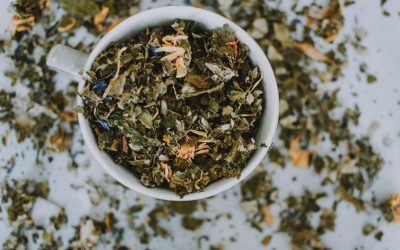Beta-carotene is a powerful antioxidant that has been scientifically proven to have numerous beneficial effects on the body, including the immune system. It’s a provitamin A compound, meaning your body can convert it into vitamin A. This makes it an essential nutrient for maintaining health and preventing disease. In this article, we’ll discuss how beta-carotene benefits immunity and how you can incorporate more of it into your diet. We’ll look at its immunomodulatory properties, explore food sources rich in beta-carotene, learn some tips for cooking with these foods, and review the potential benefits of taking supplements containing this essential nutrient. By understanding the role of beta-carotene in immunity, you’ll be able to make informed decisions about your health and wellness journey.
Overview of Beta-Carotene

You could think of beta-carotene as a key that unlocks potential health benefits, and getting to know it better can help you make the most of it. Beta-carotene is a carotenoid, which are plant pigments that give fruits and vegetables their vibrant colors. It’s an important source of vitamin A, an essential nutrient for healthy vision, skin, bones, and immunity. In addition to being found in foods like carrots and sweet potatoes, beta-carotene is also available in supplements. Dietary intake from both food sources and supplements has been linked to reduced risk of cancer, heart disease, macular degeneration, cataracts, and other conditions. However, too much beta-carotene may increase certain health risks such as lung cancer in smokers so it’s important to get your recommended daily amounts based on advice from your doctor or nutritionist.
Beta-carotene is best known for its role as a precursor to vitamin A but it also has antioxidant properties that can protect cells from damage caused by free radicals. There have been numerous studies conducted on the effects of beta-carotene supplementation on immune function with promising results showing improved protection against infections and inflammation compared to those who don’t take supplemental forms of this provitamin A compound. Regular consumption appears safe at doses up to 25 mg per day but higher doses should be carefully monitored due to possible side effects such as nausea or yellowing skin discoloration called carotenemia.
Research indicates that while dietary sources alone may not provide enough beta-carotene to reap all its potential health benefits supplementing with this provitamin A compound can help support healthy vision, skin integrity, and immunity in individuals who need extra support or are at risk for deficiencies related conditions such age or lifestyle factors like smoking or inadequate diets
Immunomodulatory Properties of Beta-Carotene
Beta-carotene’s immunomodulatory properties are so powerful, they almost seem limitless! This provitamin A compound has been known to have antioxidant effects that can affect the human body in a variety of ways. These effects help to modulate inflammation and immune responses, making it an essential part of any healthy lifestyle. Research has shown that beta-carotene plays a role in improving the body’s resistance to infection and disease. It can also help reduce inflammation and oxidative stress, both of which are linked to many chronic health issues. Additionally, beta-carotene has been found to boost immunity by increasing T cells – a type of white blood cell that helps the body fight off foreign invaders like bacteria and viruses.
The role of beta-carotene in modulating inflammation is also important for maintaining overall health. Studies have shown that this provitamin A compound can help reduce levels of proinflammatory cytokines, which are molecules released by the immune system when it is fighting off an infection or injury. This helps keep inflammation under control and reduces the risk of developing chronic diseases related to excessive inflammatory responses. Furthermore, beta-carotene has been found to increase levels of anti-inflammatory cytokines such as interleukin 10 (IL-10), thus helping maintain a balance between proinflammatory and anti-inflammatory signals in the body.
By providing antioxidant protection against free radicals as well as modulating inflammation and immunity, beta-carotene offers numerous benefits for optimum health outcomes. It is recommended that people consume foods rich in this nutrient regularly for best results – carrots, sweet potatoes, pumpkin, apricots, mangoes, and spinach are some examples of good sources!
Benefits of Beta-Carotene for Immune Function

Discover the incredible ways beta-carotene can help your body fight off infection and disease, while also reducing inflammation and oxidative stress. Beta-carotene is a powerful provitamin A compound that has been studied for its ability to modulate both innate and adaptive immune responses. It is known to provide cellular protection against oxidative damage by increasing the production of antioxidant enzymes, which helps protect cells from free radical damage. Furthermore, studies have found that beta-carotene may reduce inflammatory processes in the body by suppressing proinflammatory cytokines and promoting anti-inflammatory ones.
Beta-carotene has also been observed to stimulate T cell proliferation and cytokine production in vitro as well as increase natural killer cell activity in vivo. These immunomodulatory properties make it an ideal supplement for supporting healthy immune function. In addition, research suggests that taking beta-carotene supplements can help improve microbial balance within the gut microbiome which further enhances overall health and immunity.
The benefits of consuming dietary sources or taking supplementation of beta-carotene are numerous when it comes to bolstering overall health but especially supporting immune system functioning. This provitamin A compound should be included in any diet plan that seeks to improve immunity because of its various immunoregulating effects, increased cellular protection against oxidative damage, promotion of healthy microbial balance within the gut microbiome, as well as its ability to reduce inflammatory processes within the body.
Food Sources of Beta-Carotene
Enjoy the many benefits of beta-carotene by adding its dietary sources to your daily meals, such as sweet potatoes, carrots, kale, spinach, and cantaloupe. Beta-carotene is a provitamin A compound that can be converted into vitamin A in the body. It is an important nutrient for maintaining a healthy immune system as it helps to protect against infections and other illnesses. To make sure you are getting enough beta-carotene in your diet, consider eating plant-based foods like dark green leafy vegetables and orange and yellow fruits regularly. Adding these foods to your diet will help ensure that you are meeting all your dietary requirements when it comes to beta-carotene intake.
Fruits and vegetables with high concentrations of beta-carotene include apricots, broccoli, winter squash, pumpkin, bell peppers, papaya, mangoes, and Brussels sprouts. Eating a variety of these foods will help increase the amount of antioxidants in your body which can assist in keeping your immune system strong. Additionally, some fortified breakfast cereals offer small amounts of beta-carotene so this may be another option if you don’t have access to fresh produce or find it difficult to prepare these types of food yourself.
Beta-Carotene is not only found naturally occurring in certain fruits and vegetables but supplements are also available if required however taking too many supplements can lead to negative effects such as liver damage so it’s best to speak with a doctor before considering any changes to your current diet or supplement regime. Fortunately, there are plenty of ways for everyone – regardless of age – to receive their recommended daily dose of beta-carotene through their lifestyle choices making sure they get all the necessary nutrients needed for optimal health and immunity!
Cooking with Beta-Carotene Rich Foods

Unlock the deliciousness of beta-carotene-rich foods with some creative cooking! Beta-carotene is a provitamin A compound found in many fruits and vegetables. It’s also an antioxidant which can help to boost the body’s immunity. To get the most out of these nutrient-packed foods, it helps to use them in creative ways. Here are three tips for incorporating more beta-carotene into your diet:
- Spice Blending: Add a bit of flavor and color to your dishes by blending spices like garlic, onion, turmeric, paprika, or cayenne pepper. Adding these spices will not only make your food tastier but they will also increase its health benefits by boosting the amount of beta-carotene available for absorption.
- Meal Planning: Plan and include more beta-carotene-rich foods into your weekly meal plan so you can easily incorporate them into everyday meals without much effort. This could mean adding a few extra carrots or sweet potatoes to soups or salads or including more leafy greens like spinach and kale in smoothies.
Making small adjustments like this can make all the difference when it comes to getting enough beta-carotene in your diet regularly. Not only will you be healthier overall, but you’ll also enjoy delicious meals that provide an array of health benefits as well!
Beta-Carotene Supplements
By taking beta-carotene supplements, you’re giving your body a powerful boost of antioxidants and unlocking its potential for improved immunity and overall health. Beta-carotene is a provitamin A compound found in fruits and vegetables that helps to support the immune system. Taking beta-carotene supplements are considered safe, with few side effects reported though there are some interactions to consider before starting any supplement regimen.
| Benefits | Side Effects |
|---|---|
| Immunity Boost | Interactions with medications |
| Antioxidant Support | Nausea/Diarrhea in high dose vitaminis |
| Vitamin A precursor | Mild skin reactions like itching or rash |
| Protects cells from damage | Yellowing of palms or soles of feet (rare) |
| Supports healthy vision | Headache (rare) |
When deciding on whether or not to take supplements containing beta carotene, it’s important to understand their safety, as well as any potential side effects. Be sure to consult with your healthcare provider before beginning any new supplement regimen. If you decide that beta carotene supplementation is right for you, be sure to follow the recommended dosage instructions carefully and monitor your response closely. With careful consideration of the benefits and risks of taking beta-carotene supplements, you can help ensure that these powerful vitamins can work for you in promoting optimal health and wellness.
Summary of Benefits of Beta-Carotene for Immunity
Taking beta-carotene supplements is like hitting two birds with one stone: you’re giving your body an immune system boost and a powerhouse of antioxidants all at once. Beta-carotene, a provitamin A compound found in fruits and vegetables, has been linked to improved immune function. It works by enhancing the body’s ability to fight off disease and infection as well as reducing oxidative stress caused by free radicals. Additionally, research has shown that beta-carotene may have a direct connection with the gut microbiota which helps regulate immune responses.
The benefits of taking beta-carotene are numerous. Studies have demonstrated its efficacy in boosting immunity against viral infections such as influenza virus and herpes simplex virus type 1 (HSV-1). Furthermore, it can help combat inflammation caused by various diseases such as rheumatoid arthritis and lupus. In addition, some research suggests that it may have anti-cancer properties due to its role in preventing DNA damage from free radicals generated during metabolic activity in cells.
Beta-carotene is also known for improving overall health through its antioxidant effects. Its ability to scavenge reactive oxygen species (ROS) helps reduce oxidative stress on cells which can ultimately lead to a stronger immune system response when faced with infectious agents or environmental threats. Taking beta-carotene supplements can also help protect against chronic illnesses such as cardiovascular disease and diabetes due to their potential protective effect against oxidative damage caused by high blood glucose levels or elevated cholesterol levels associated with these conditions. Overall, this powerful vitamin offers impressive protection for the human body while providing other essential nutrients necessary for optimal health.
Frequently Asked Questions
What are the potential side effects of taking beta-carotene supplements?
Taking beta-carotene supplements can have potential side effects, some of which may be serious. Drug interactions are a risk when taking beta-carotene supplements, so it is important to check with your doctor before taking them. The dosage forms of beta-carotene vary depending on the manufacturer; however, common side effects include nausea, vomiting, and diarrhea if taken in large amounts. It’s also important to ensure that the supplement you take is free from dangerous additives or contaminants that could lead to further health issues. In general, it’s recommended to start with a lower dose and increase slowly if needed. As with any supplement or medication, it’s important to consult your doctor before taking a beta-carotene supplement to make sure it is safe for you and won’t interfere with any other medications you may be taking.
Is there a recommended daily intake of beta-carotene?
You may be asking yourself, is there a recommended daily intake of beta-carotene? The answer is yes! Beta-carotene can be obtained from dietary sources such as fruits and vegetables, or through supplementation. For adults, the suggested daily intake of beta-carotene to support immune system function is 5 – 15 milligrams (mg). However, it is important to consult your healthcare provider before taking any supplement to ensure the right dose for you. Additionally, eating foods rich in beta-carotene, such as carrots, sweet potatoes and kale can help you reach your recommended daily intake.
Are there any other natural alternatives to beta-carotene for boosting immunity?
You may not have heard of beta-carotene, but it’s an important provitamin A compound that has been linked to improved immune health. If you’re looking for natural alternatives to boost your immunity, consider phytonutrients found in dietary sources such as fruits and vegetables. These beneficial compounds contain antioxidants that can help protect cells from oxidative damage, improving your overall immunity. From citrus fruits like oranges and grapefruits to leafy greens like kale and spinach, these colorful foods are rich in phytonutrients that can help keep your body healthy without resorting to supplements. Eating a diet full of fresh produce is a great way to get the vitamins and minerals you need to keep your immune system strong.
Is the absorption of beta-carotene affected by other vitamins and minerals?
When it comes to your diet, having a vitamin-rich, one is important for ensuring that you get the most out of beta-carotene’s antioxidant properties. Beta-carotene absorption can be affected by other vitamins and minerals present in your body and as such, a good balance of different vitamins is essential for getting the full immune benefits of this provitamin A compound. Eating a variety of foods with lots of different vitamins and minerals will ensure that you get the most out of this beneficial compound.
Are there any risks associated with consuming too much beta-carotene?
You may have heard the saying “toToouch of a good thing can be bad.” This is true with beta-carotene, as well. Consuming too much of this provitamin A compound can cause long-term effects and create an absorption rate that is too high for your body to handle. Although it has many health benefits, you should always be mindful to not overconsume it to avoid any risks associated with it. Eating a balanced diet, containing enough vitamins and minerals, will ensure that you are getting the correct amount of beta-carotene without putting your health at risk.











